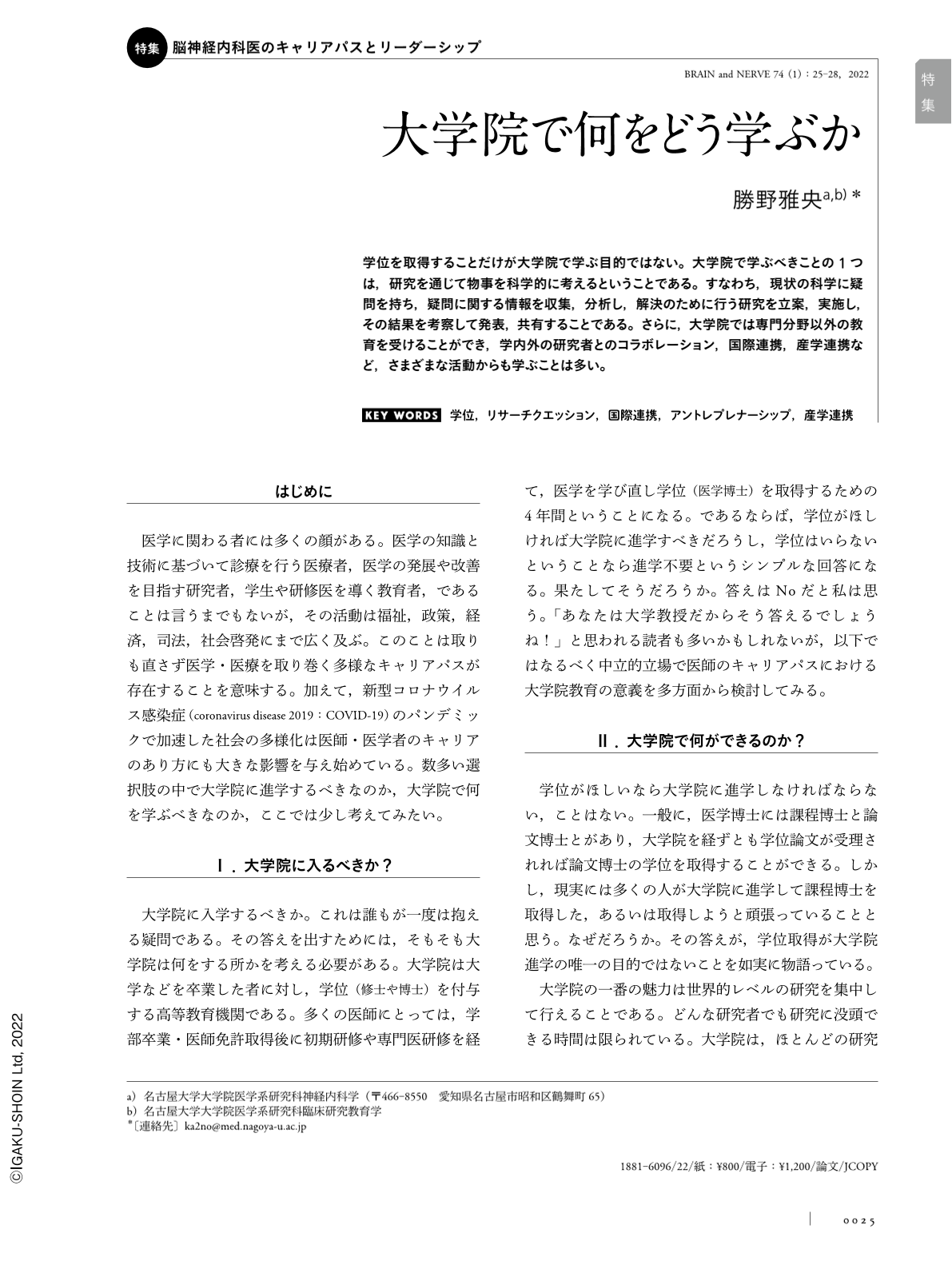Japanese
English
- 有料閲覧
- Abstract 文献概要
- 1ページ目 Look Inside
- 参考文献 Reference
学位を取得することだけが大学院で学ぶ目的ではない。大学院で学ぶべきことの1つは,研究を通じて物事を科学的に考えるということである。すなわち,現状の科学に疑問を持ち,疑問に関する情報を収集,分析し,解決のために行う研究を立案,実施し,その結果を考察して発表,共有することである。さらに,大学院では専門分野以外の教育を受けることができ,学内外の研究者とのコラボレーション,国際連携,産学連携など,さまざまな活動からも学ぶことは多い。
Abstract
Obtaining a degree is not the sole purpose of graduate school. Through the research for your thesis, you will learn scientific approaches, including how to formulate a research question, perform information analysis, study planning and execution, discussion, and publication. This knowledge, together with communication skills and the network constructed in graduate school, will enrich your future career. The activities in graduate school also include cutting-egde education on topics outside your expertise, collaboration with other researchers, international collaboration, and industry-academia collaboration, among others. As for your research topic in graduate school, your motivation for study is very important; moreover, it is also important to discuss research resources, including funding, facilities, materials, data, supporting staff, and collaborators, with your mentors. However, being a student after several years of clinical training has certain disadvantages, such as an unstable social status. Considering the diverse career paths of neurologists, the advantages and disadvantages of graduate school should be thoroughly considered when deciding to enter.

Copyright © 2022, Igaku-Shoin Ltd. All rights reserved.


